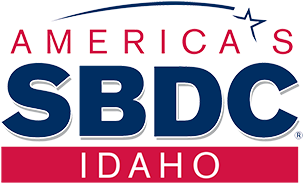Searching in Employer Issues [clear]
Employer Issues
How do I establish a retirement plan for my employees?
Retirement plans must comply with Federal and state laws and Internal Revenue Service requirements. The U.S. Department of Labor oversees the Employee Benefits Security Administration (EBSA), which sets standards for establishing and maintaining retirement plans. The DOL also administers the Pension Protection Act.
Internal Revenue requirements for establishing small business retirement plans are found at Retirement Plans for Small Entities and in Publication 560.
Harassment is a touchy subject. What do I need to know to protect my employees and myself?
On the job harassment takes many forms, none of which should be tolerated. One employee may harass another; a supervisor may harass an employee, group of employees or another supervisor; or a customer may harass one or more of your employees. Harassment may be related to religion, ethnicity, gender, age, disability or another issue. Bullying is a form of harassment and should not be tolerated.
Every business with employees should have a written harassment policy that is clearly communicated to employees, both as a deterrent to harassment and to inform employees of their rights if they are harassed. It is particularly important to have a written sexual harassment policy because sexual harassment on the job violates federal civil rights laws. Having a written policy your employees know about may offer some protection if you are sued.
Click here for training videos and additional information about preventing or investigating sexual harassment complaints.
For more information about employer responsibilities in preventing workplace harassment, see “Employee Handbooks” on the Helpful Links page of this website and visit the Idaho Human Rights Commission's website.
I had to fire an employee who used drugs on and off the job. I don’t want this to happen again. Where can I get help?
With the legalization of cannabis use in several states, employee use of illegal or controlled substances has become an increasing problem. According to the U.S. Department of Labor, 65 percent of workplace accidents involve drugs or alcohol. Over 70 percent of illegal drug users are employed, and 3.1 percent say they have used illegal drugs before or during work hours. The American Insurance Association reports that prescription drug abuse is the fastest growing drug problem in the U.S. In addition, 79 percent of the nation’s heavy alcohol users are employed, and 13 percent say they have consumed alcohol during the workday. Fourteen percent of heavy drinkers (those who consume 5 or more drinks each day) are employed full or part-time. Over 10 percent of workers who died on the job betweem 2019 and 2021 tested positive for alcohol or drugs. Of that number, 20 percent tested positive for two or more substances.
Substance abuse on the job costs employers approximately $74 billion each year in lost productivity, increased absenteeism, theft, and accidents and injuries that lead to workers compensation claims.
To help combat substance abuse both on and off the job, the Substance Abuse and Mental Health Services Administration (SAMHSA), a division of the U.S. Department of Health and Human Services, maintains a resource center to help employers address these issues and to assist in creating substance abuse employment policies. Additional information can be found on the National Safety Council’s website.
Ninety percent of large corporations have drug-free workplace programs but less than 10 percent of small and medium sized businesses have one, making them prime targets for addicted employees. DrugFree Idaho helps Idaho businesses establish a drug-free workplace program. Having a program in place may reduce workers comp insurance premiums, which may be enough to offset the costs of implementing the program. Today, with the legalization of medical marijuana use in some states and recreational use in others, it is important to involve your attorney when drafting a drug-free workplace policy.





